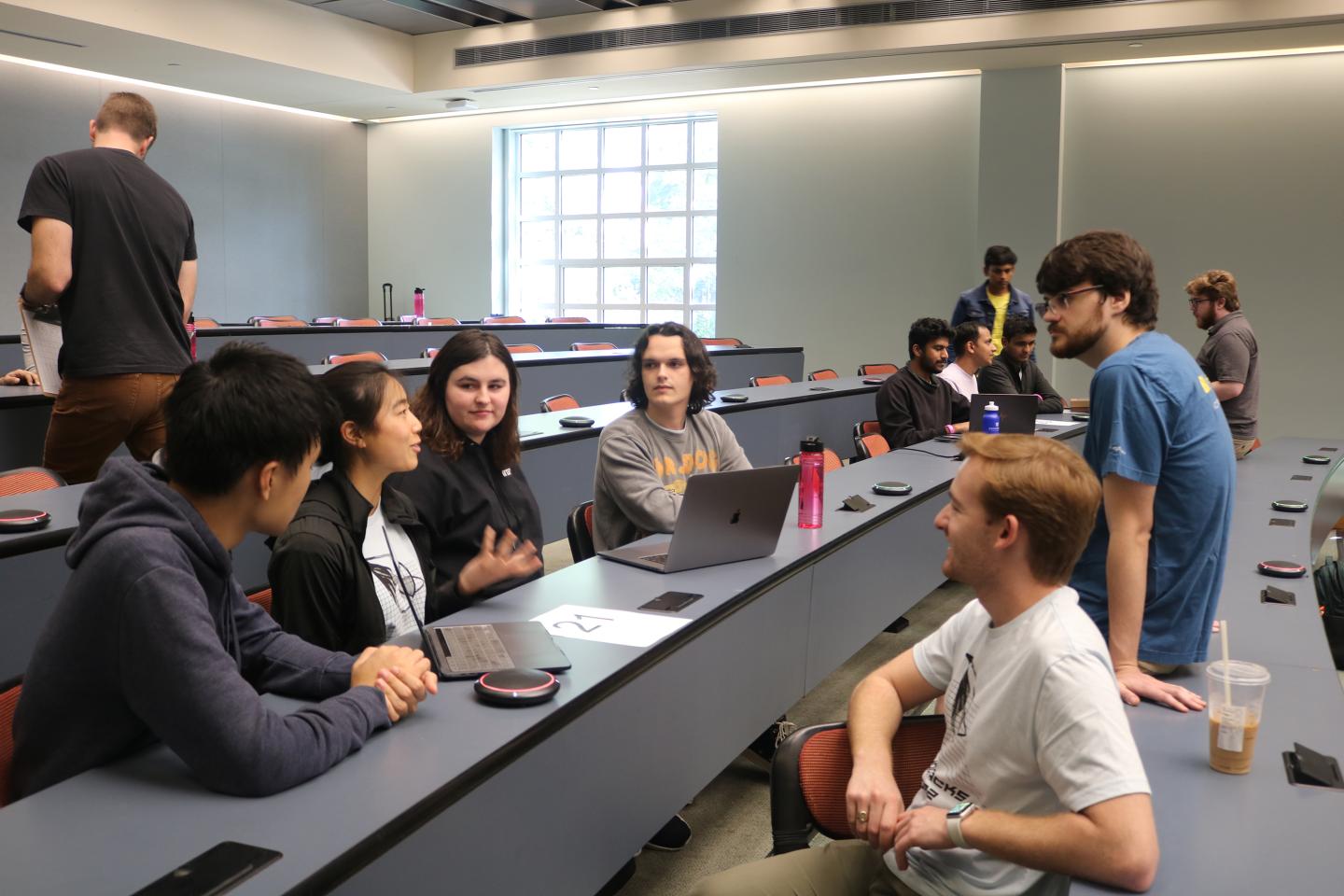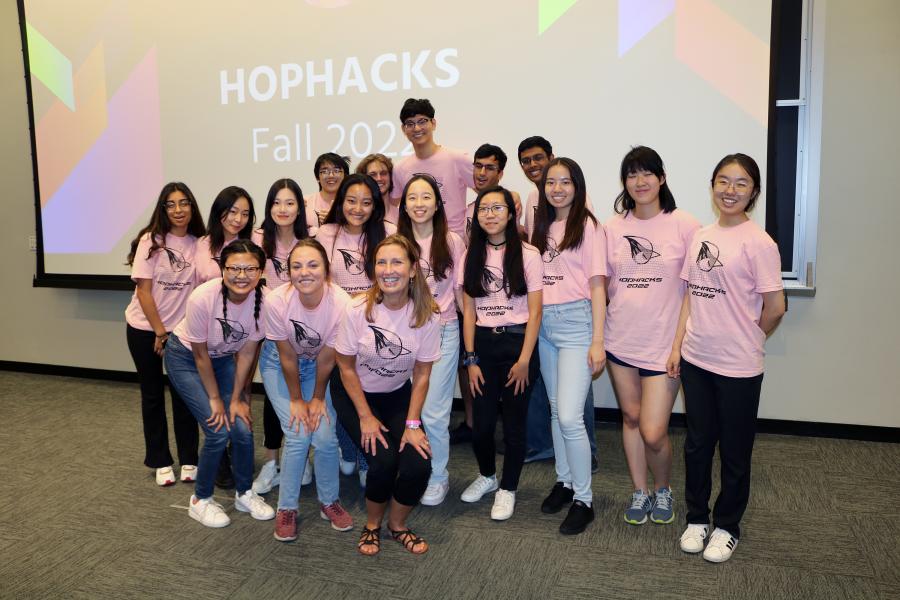For 36 hours in Hodson Hall last month, student "hackers" fought to solve modern problems with their own software programs—and fought to keep their eyes open.
In its popular biannual HopHacks event, the Johns Hopkins Department of Computer Science invited students hailing from across the country to compete in a 36-hour hackathon to create new technology solutions to various real-world problems of their choosing. This year, 147 students flocked to the university's Homewood campus in hopes of winning their share of the nearly $2,800 prize pool.
For participants, HopHacks is a unique opportunity to explore the great world of computer science, with no previous programming experience required to compete.
"HopHacks is a valuable experience because coding is something you learn by doing," said Curtis Ahn, HopHacks director and third-year student in computer science. "Even if you're not working on a project at the event, you get to attend workshops that are interactive and informative. Both computer science and non-computer science students are able to take away new skills and experiences from the weekend."
Opening ceremonies kicked off at 8 p.m. on Friday evening, September 16. Students gathered in groups of four and spent the next day and a half creating their own software applications in designated "hacking rooms." Throughout the weekend, students had the opportunity to participate in various workshops and working interviews, consult mentors, and even catch a wink of sleep.
Workshops this year included presentations from Booz Allen, Accenture, and DigitalOcean, and mentors came from GoogleCloud, Bloomberg, and JHU Information Technology.
During the hackathon, teams were challenged to use only publicly available API in their project construction along with no externally written code. Every line of code must be written within the HopHacks event, said Ahn.

Image credit: Courtesy of HopHacks
Multiple categories of competition were available to participants including Best Domain name from Domain.com, Most Innovative Platform to Help with Learning, and Best Application to Support Philanthropic Goals. Across the field of projects, first, second, and third place winners took home $1,024, $512, and $256 in prizes, respectively.
Team members Anthony Sky Ng-Thow-Hing, a second-year student in computer science; Liwen Tran, a second-year student in computer engineering; and Alan Mao and Ataes Aggarwal, both second-year students in biomedical engineering developed a project called CopyCat, a computer app that aids in teaching young students with autism how to recognize and repeat emotions.
"Many of our members have worked with children with autism, either personally or through school-related projects," the team embers said. "We quickly noticed that the teaching resources for these children, especially when it came to teaching emotions, were wildly outdated and inefficient. We created Copycat with the hopes of providing a more fun and engaging social-emotional learning experience."
CopyCat not only took home first place overall, but also garnered top honors in Most User-Friendly Platform to Help with Learning and Best Application to Support Philanthropic Goals.
While the event may take a toll on participants' sleep schedules, it rewards them with tangible programming experience, real-time collaboration, and midnight pizzas to fuel their creativity.
"If you were to walk around Hodson Hall on Saturday, it would be hard to believe there's this huge event going on, as most students are grinding away at their projects," said Kelly Culotta, senior academic program coordinator for computer science. "Well, except for the occasional student popping out of the hacking rooms for a RedBull."
A full list of the 2022 HopHacks projects and winners can be found online.
Posted in Science+Technology, Student Life








